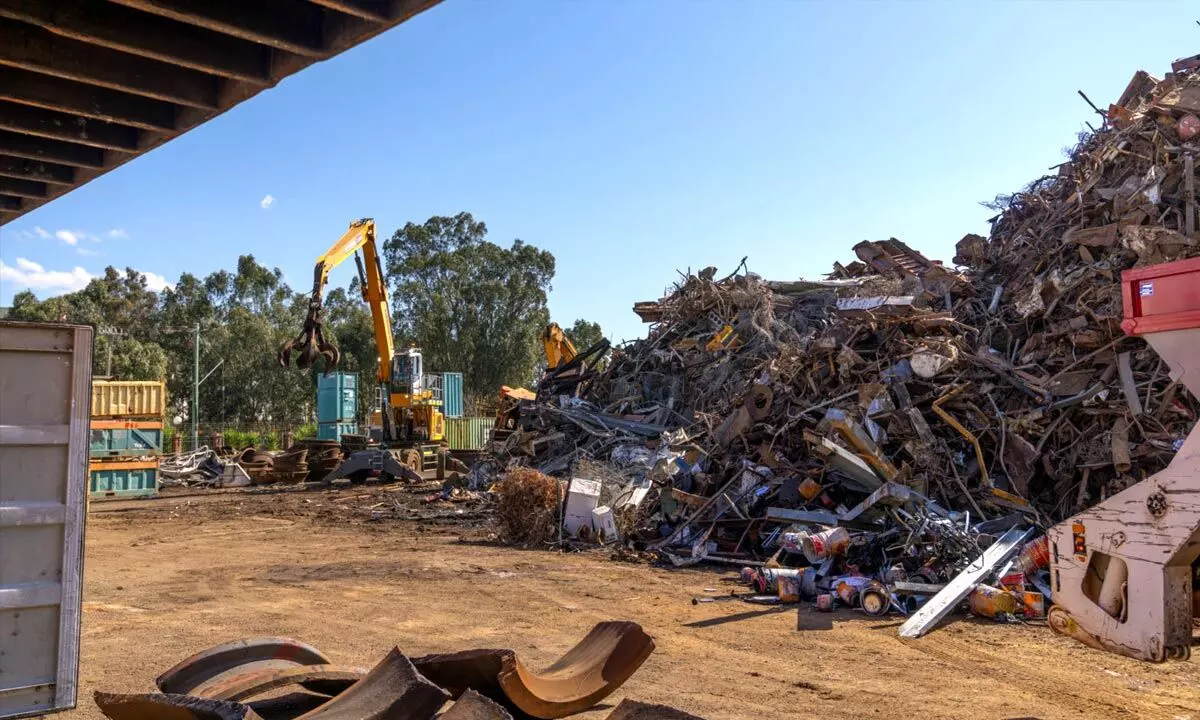Urbanisation driving growth for metal recycling industry
Without getting into any particular number of any particular study, it can be easily said that growing urban population is propelling the global market growth of metal recycling industry significantly.
image for illustrative purpose

Without getting into any particular number of any particular study, it can be easily said that growing urban population is propelling the global market growth of metal recycling industry significantly. The high growth and the projected strong growth of this sector can also be attributed to increasing awareness of the importance of resource conservation and waste management. Metal recycling actually is one of the fastest-growing industries in the world and one of the most important ways to preserve the environment. Mind you that metals are important, flexible and can be used in several ways. Metals may be used for industrial uses such as the manufacture of vehicles, airplanes, ships and railways. They can even be used in the production of domestic products such as cutlery, crockery and also in packaging. The positive thing about recycling metal is that, without altering its characteristics, metal can be recycled again and again. Metal consists of two types, nonferrous and ferrous. Examples of ferrous metals comprise Cast Iron, Stainless Steel, Carbon Steel, Engineering Steel, wrought iron. Non-ferrous metals include aluminium, copper, lead, nickel, tin, titanium and zinc, as well as copper alloys like brass and bronze. Steel with 100 per cent recyclability, is the most recycled material in the world per tonne.
Recycling of scrap metal includes the recovery and processing of scrap metal from end-of-life products or structures as well as from manufacturing scrap, so that it can be used as a raw material in the manufacture of new goods. With no loss in its properties it can be recycled repeatedly. Since the early ages of metalworking, scrap metal has been salvaged and reused. Metal recycling is extremely useful from both an environmental and an economical point of view.
While sectors like construction, automobiles, defence, and consumer electronics are fuelling the growth of metal cycling industry, one should not forget about various much talked-about green energy initiatives, which in turn, are also pushing up the demand for recycled metals. With the growing demand for green energy, recycling companies can actually increase their bottom line by selling metal and other materials to local and global markets. There are many benefits associated with recycling your old products, such as reducing waste, saving space in landfills, reducing air pollution from incinerators and providing jobs for people who would otherwise be unemployed due to lack of work opportunities or poor economic conditions. There's also an environmental benefit because less raw material needs to be extracted, which means fewer trees need to be cut down. By using recycled materials, industries can help keep valuable resources out of landfills while also reducing their emissions.
While it is true that growing concern about the increasing depletion of natural resources has prompted governments in many countries to introduce favourable policies for the metal recycling industry, which is further propelling the demand for metal recycling, high production and recycling costs are the key reason for restraining the global metal recycling market growth. High raw material costs are one of the factors that is diminishing global market growth. In addition, high labour costs are also one of the main factors that restrain global market growth.
The Union Steel Ministry has taken various steps to boost the steel industry like the launch of National Steel policy 2017, focus on scrap recycling, quality control orders, and so on. For a country like India, there is no alternative to boosting recycling of metals and steel, in particular.

